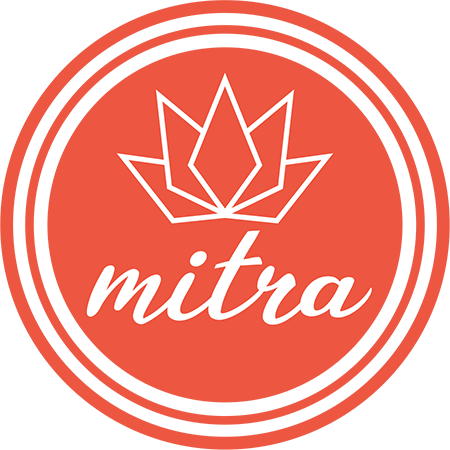
COVID sustenance: Your resilience lies in your core Strengths
By Dries Lombaard
At any given moment, we are strongly influenced by our thoughts, feelings, and actions. It may be more accurate to say we ARE these three aspects, all the time. Our actions are observable. Our thoughts are knowable. Our emotions are expressible. But, for most of us, none of these are always that comprehensible. Not within ourselves, and even more so, not within others.
In a time of crisis of any sorts, our patterns of thought, feeling and behaviour are what defines us. Watching the behaviour of people around us often causes us to say something like, “What was she thinking?”, or on the more positive side “How on earth did he do that?”
When it comes to the thoughts and emotions of others, it may seem more difficult to grasp, and less observable. Unless, of course, people express their thoughts and emotions clearly, something that is strongly indicated currently in protest actions all across the globe.
One thing is undeniable, not since the last world war have we lived in such unprecedented stressful times. A psychiatrist friend of mine remarked that she has been busier in the last three months than in the whole of her twenty year career. Almost all her current cases are related to anxiety and stress, linked to the effects of the current COVID-19 pandemic.
But what if some real and immediate stress relief is right within your grasp? What if you can pinpoint, and describe the patterns of thought, feeling or behaviour that forms a recurring pattern within you? What if you can give a definitive word to your frustration or irritation, and, what if the mere fact that you understand its origin will bring you relief?
This is where the development and management of you strengths become important. But what am I talking about when I refer to strengths? And how do we distinguish between a Talent and a Strength?
Consider this: “Talent reflects how you’re hard-wired. That’s what sets the concept apart from that of knowledge or skills. Talent dictates your moment-by-moment reactions to your environment — there’s an instinctiveness, an immediacy implied. Talent results in consistently recurring patterns of thought or behavior.” (Sorensen and Crabtree, Gallup Business Journal, 2000).
During the past two decades, Gallup accelerated their research into human talent. Where talent is generally understood to be “ability” or “skill”, Gallup explored the connection between our unique individual “hard-wired” patterns that result in the way we think, feel and behave. They defined this as talent, and, even more revealing, they explored the ways in which we can develop these “raw” patterns of talent into “mature” patterns, which then becomes our unique combination of “Strengths”.
My point is this: If you know your distinctive set of most dominant talent patterns or “Talent Themes” you can do more than simply understand where specific thoughts, emotions or actions originate. When you are able to develop and manage your Talents, they become your sustainable Strengths.
When you see your Strengths as unique patterns that explain “what is right with you”, and not “what is wrong with you”, you engage into the powerful journey of Strengths-based development. Most of all, if you manage your Strengths well in the work place, you are better able to manage your stress levels, and will become more resilient and adaptable.
The best part is that it is not complicated or academic (even though my introduction may seem a bit theoretical in nature). Gallup developed the CliftonStrengths Assessment, which ranks your strongest talents up to the unique combination of 1 in 33 million! Thus, the chances of somebody else having exactly the same combination of talents than you do, are one in thirty-three million!
All this said, how would this assist you in navigating the stress and challenges related to the current COVID time?
I will explain this by using some of my own, most dominant talents as an example. A few of my strongest talent themes are described as “Ideation, Input, Intellection, Adaptability and Deliberative”. The first three, indicate that my personal pattern of thought, feeling and behaviour is strongly linked to my thinking. I am inclined to come up with new and fresh ideas, love to research and gather meaningful information, and think deeply about the world around me. I am also very responsive to the moment, and I have the tendency to be very careful and deliberate in my actions.
It is important to realise that these talents are not necessarily my Strengths yet – they can simply be raw indications of thoughts, behaviour or feelings. But, since I have dedicated most of the last fifteen years of my life and career to develop my own talents (and those of others) into mature strengths, I know that I can rely on them as an accurate indication of my own state of being.
Each of these Strengths can be well-managed or mismanaged. It is up to me. If I mismanage them, they will be to my detriment. If I manage them well, they become my strongest asset in my response to my circumstances, in a work context and my personal life.
The knowledge that I tend to research and gather information (Input), provides me with the insight that I should manage this pattern when faced with the COVID challenge of constant barrage of news and information, and not become enslaved to all the informative news channels and apps all day. It may satisfy my “Input” Strength, but if I do not set boundaries, I will become overloaded with negative information.
The knowledge that I tend to respond well to the moment (Adaptability), and could be reactive to the here-and-now, gave me the insight that I could strongly lean into this specific Strength during lockdown by simply taking it one day at a time.
By the way, this was a benefit to me in comparison to my wife, who has the Strength of Futuristic and not strong Adaptability. Her tendency to always plan far ahead into the future became a real challenge to her in these times. Insight into the fact that there is nothing wrong with her, but that she only need to temporarily “turn down” her Futuristic needs, helped her to also rely on my Adaptability more, and go with the flow during the frustrating lockdown period.
Each one of us has unique strengths. This is not mere skill and ability. It is the patterns that guides our thoughts, emotions and actions.
If you know what your strengths are, you have a powerful advantage in self-management. You can lean into some of your strengths, or intentionally “turn down the volume” of some other strengths. This is do-able.
The even bigger advantage of knowing your strengths, is being aware of the strengths of people who are close to you. Family, colleagues or friends. If you know their Strengths, you can lean into their patterns of thought, emotion or action when you need to do so, and you can offer up your natural Strengths as support to them.
Remember: You might need help, but you are also exactly the help someone else needs.
Dries is an experienced Strengths-based Coach, Leader and Team Facilitator and Trainer of Coaches in Strengths Coaching. His more than 7000 hours of active leader and team Strengths Coaching experience, makes him one of the most sought-after Strengths Coaches and Facilitators in the world. View Dries Lombaard biography


